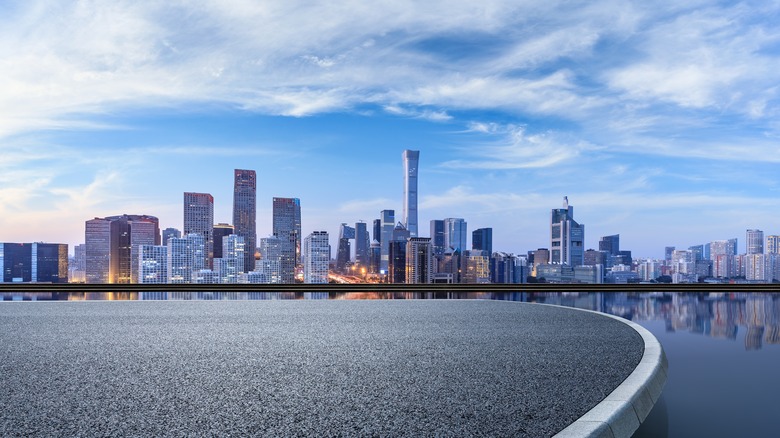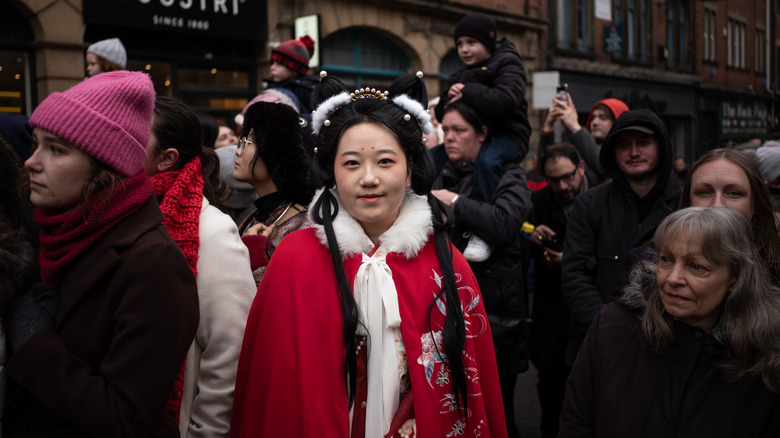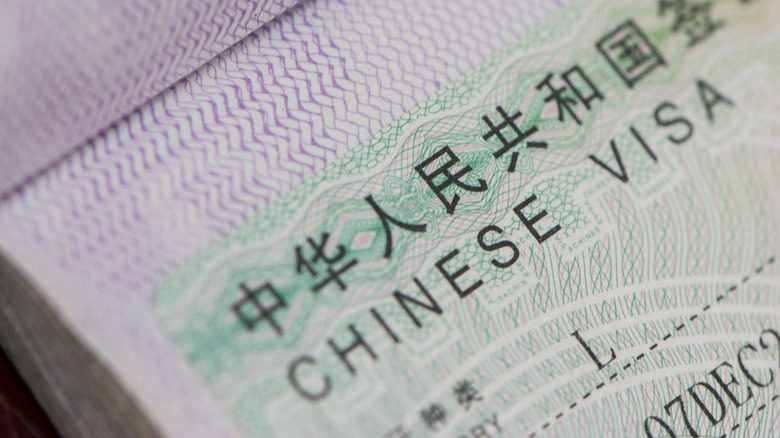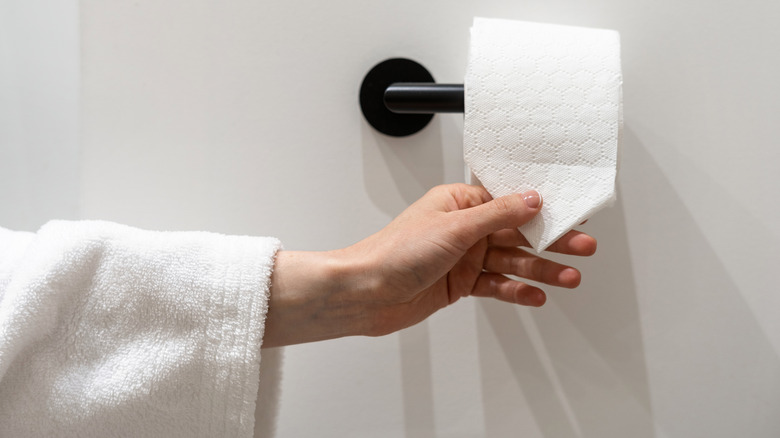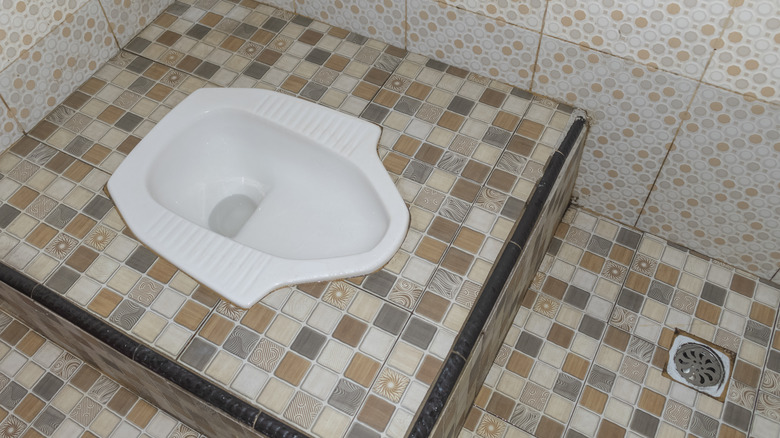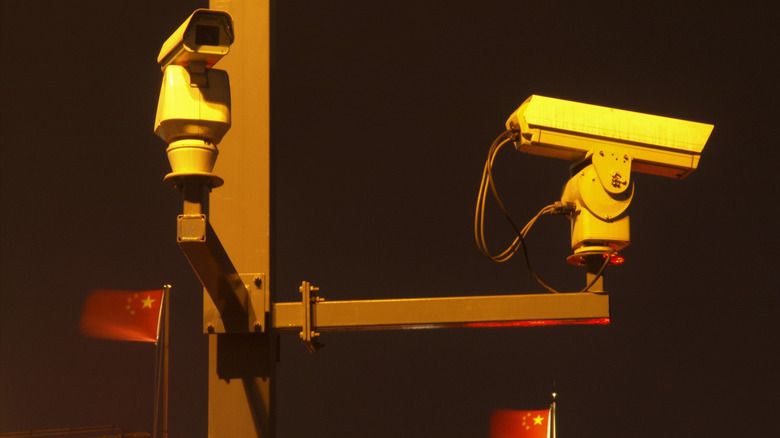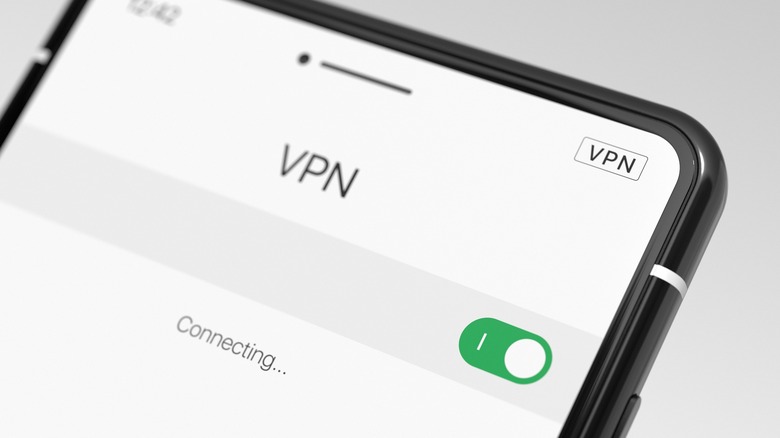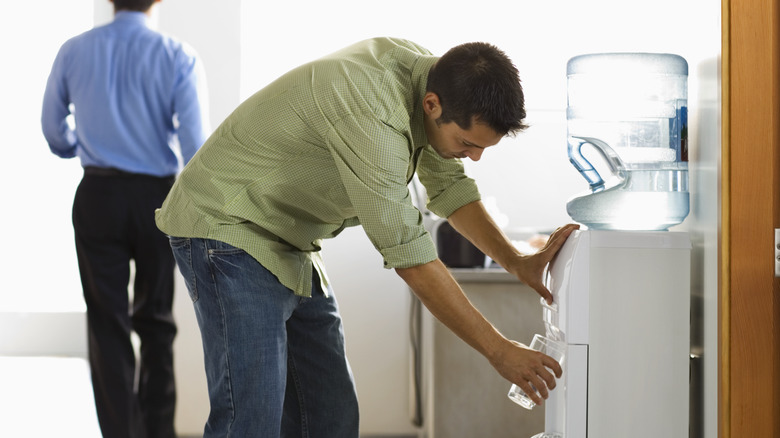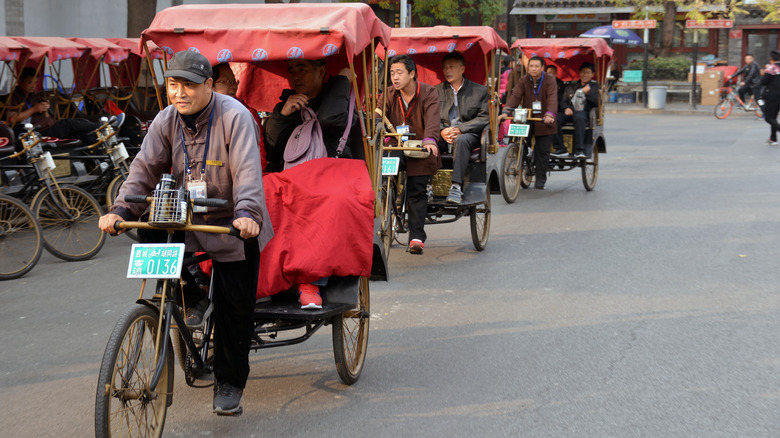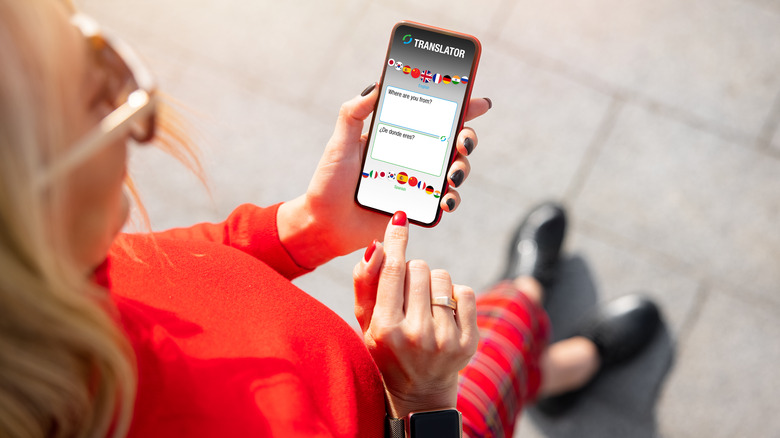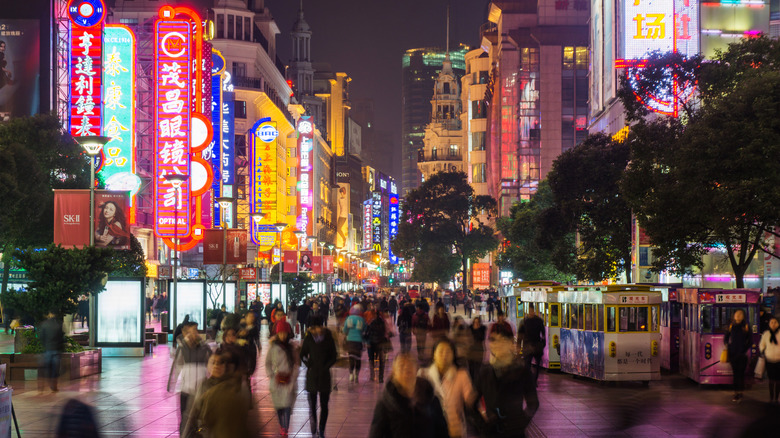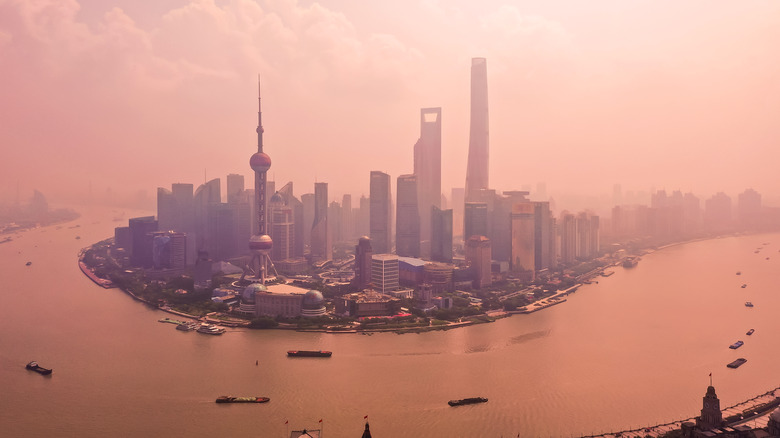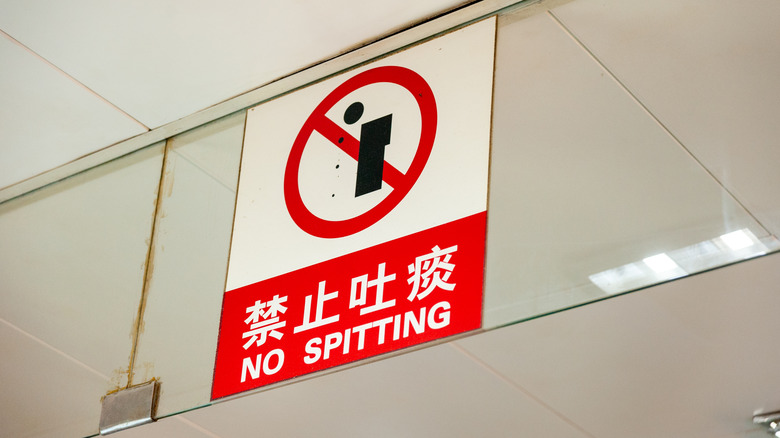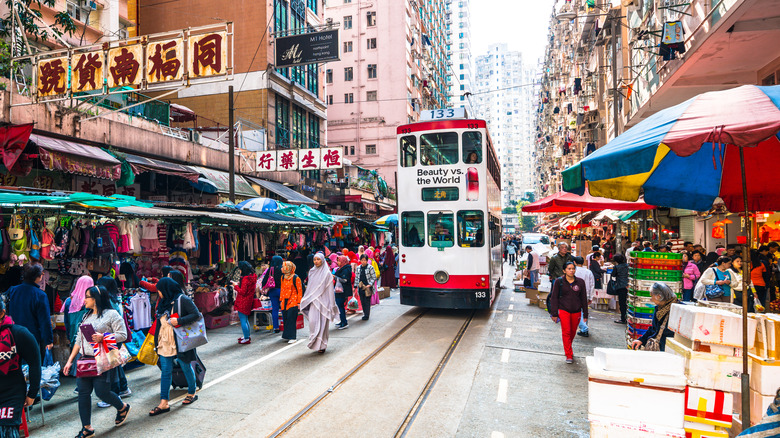What To Know Before Traveling To China
China is one of the places on Earth that millions of people travel to each year, many for the first and only time in their lives. Whether you've been looking forward to your trip for years or you're just curious and want to experience a vastly different part of the world, there are a handful of ways to prepare to visit China.
Aside from the language barriers (unless you speak one of the several Chinese languages) and cultural differences, traveling to China is bound to surprise you in more ways than one. For example, did you think to have little packets of tissue or toilet paper with you while you're traveling? Because you'll want to have that handy — particularly if you're traveling to lesser-touristed regions of the country that are less Westernized than major cities like Shanghai or Beijing. While you don't necessarily have to follow this list, these tips will make your trip significantly better.
Drop your assumptions at the door
Above all else, leaving your assumptions behind is the best way to experience China. Despite what you know from popular culture or personal experience with Chinese culture, this incredible place cannot be contained by a single frame of reference. From the ancient sites to soaring skyscrapers and everything in between, the 23 provinces differ greatly from one another. Even Beijing, Shanghai, and X'ian can feel like worlds away from one another.
Some of the country's largest cities like Shanghai and Beijing have become much more Westernized in the last several decades. While you won't feel like you're wandering an American metropolis, you will experience some familiar occurrences — like spotting familiar chains like KFC and Starbucks or having access to seated toilets. But whatever you do, walk into the trip with an open mind. You're sure to have a range of experiences here, which might involve seeing many of the stunning, ancient temples or seeing the view from the tallest skyscrapers. Either way, you may discover a love for new foods or activities you never imagined.
Apply for your visa early
While there are a handful of exceptions, if you're traveling to China from the United States, you'll probably need a visa. Getting the visa is pretty straightforward, though you're better off applying as soon as you can instead of paying hefty processing fees to get it done faster.
Depending on where you live, waiting around at a consulate or visa service may be a lengthy process. Even in big cities like Chicago, you could show up and never be seen even after waiting several hours. Normally, the turnaround time for processing is just a few days, but do yourself a favor and apply at least a month in advance. Be warned, however, that tourist visas expire after three months. So don't apply too early and risk your visa expiring before you even leave.
Like your passport, it's also a good idea to take a photo and have a digital record of your visa on you during your travel. It will be affixed inside your passport, though it's still just a piece of paper that is easy to lose or damage in transit.
Bring toilet paper and sanitizer with you
There will be some exceptions, but for the most part, you will need to bring some tissues or toilet paper with you when you are out in public in China. If the bathroom has toilet paper dispensers, they'll most likely be near the front of the bathroom, so don't forget to grab some on your way to the stall. It is highly unlikely that you will encounter the toilet paper holders that you're used to outside of perhaps a few popular locations, like a major international airport.
Also a very important note about toilet paper use – do not flush the toilet paper when you're finished. That's what the garbage bins are for. There will most likely be signs reminding you not to flush them when you're in public bathrooms in more tourist-heavy locations.
The same goes for washing up after you're done using the toilet. You can (and should) bring a hand sanitizer or soap sheets with you while traveling, just in case the bathroom isn't equipped with either. Most of them will not have soap or sanitizer, especially in less Westernized cities like Xi'an or Henan.
Understand bathrooms are different
Chances are, if you're considering a trip to China, you're aware of squat toilets. You'll encounter these a lot, especially in public areas, so be prepared to use them. Seated toilets are pretty common in hotels, big restaurants, or other public places in major cities like Beijing, Chengdu, and Shanghai, though. So you may be in luck there.
It isn't terribly hard to keep yourself balanced over the floor toilet, though practicing the motion of squatting can help you learn to stabilize yourself ahead of time. It'll be more pleasant to practice and be confident in your balance than it is to press your hands against the stall walls to keep yourself balanced.
It's important to understand too that stall doors are still pretty new in China. The majority of public bathrooms have them, though not everyone will use them. Being aware that you may walk into a bathroom and see a row of open stall doors is half the battle. Just walk in, mind your business, do your business, and go back to whatever you were doing.
Be aware of surveillance
It's no secret in the Western world that the Chinese government heavily surveils its citizens. You can safely assume that if you go to China you will also be under careful watch by the government. Seeing a lot of cameras in public places can be unnerving for Western tourists, though the majority of the surveillance is more hidden than that. Even if you don't think someone is watching or listening to you, it's better to be safe and just not talk about the government or other potentially problematic topics like issues of freedom or anything negative about the Chinese government.
When you check into a hotel, the accommodation does let the local authorities know that you're there. If you are staying with a friend or not in a hotel setting, it's your responsibility to report to the local precinct to tell them your travel plans. The government is very hyper-focused on what the people in the country, (citizens or not), are doing at all times. You're not disregarded just because you're a tourist.
Just be mindful of what you talk about anywhere, even in your hotel room or a cab. Chances are both are bugged and good luck figuring out where the bugs are. It's best to just leave them alone, instead just censor yourself to avoid being arrested. You do not want to get arrested in China.
Get a VPN ahead of time
If you plan on using the internet at all when you're in China, download a trusted VPN before departure. The majority of social media sites, Google, and other internet-based programs and applications are banned and blocked by the Chinese government. Although VPNs can't be the cure-all for getting into your Gmail while you're abroad, they can certainly help.
Even if you don't plan on using Google or Google Drive products while you're in China, you might be surprised at what sites you can't access. You'll also lose access to Instagram, Facebook, and most social media sites as well as streaming sites like Netflix too.
ExpressVPN and NordVPN are two that should serve you very well anywhere in China. Your access will probably be slower than back home if you are able to connect through a VPN, so patience is definitely required. And, like speaking in China, also be aware of what you're searching for or doing online. You can bet they're monitoring that too, especially if you don't use a VPN.
Bring some cash and download WeChat
You can pay with a credit card in some instances, but you should never assume that you can do so everywhere. A lot of Chinese retailers will alternatively accept WeChat Pay, a payment element of the social media application WeChat if you need something other than cash. All the same, you should usually have at least some cash when traveling abroad. This is particularly true for smaller retailers outside of tourist-dense areas.
Since so many social media apps and sites are banned in China, WeChat is king in China. It is the Chinese equivalent of Facebook meets Instagram meets Venmo and so many more sites in one place. Paying for things with the app is fairly common and you may need to use WeChat anyway to communicate with tour guides or folks you meet along the way. WeChat is also the most common texting app too, so knowing your way around the app is an excellent step to preparing for your journey to China.
If you'd rather just pay in cash and avoid WeChat altogether, that's fine too. Don't forget to get cash ahead of time or get a good transaction fee deal when you arrive. Just don't do your cash exchange at the airport, you're more likely to pay higher fees there.
Don't drink the tap water
Unfortunately, although advancements have happened, you're better off not drinking tap water in China. This is largely due to the pollution that also plagues the air quality in the country so much so that the tap water quality gets worse and worse by the year. You won't necessarily get violently ill if you accidentally drink tap water, though it's best to just avoid it if you can.
Any place you stay will most likely either have water bottles on hand for you or large water coolers for you to refill from. Like the air in China, tap water has also suffered quality concerns due to pollution. So even if you don't notice any immediate effects from drinking it, who knows what you're actually consuming when drinking potentially contaminated water? Consider bringing water additives to make the water taste a little better, as it's important to stay hydrated, particularly in the hotter summer months.
Beware of pedicabs
Sure, the premise of riding in a pedicab seems romantic in springtime weather, but you should just avoid them altogether in China. Pedicabs can rip you off, aggressively solicit you to go with them, and generally just give bad vibes. There's a reason why they're considered one of the worst tourist scams in China.
Taxis are plentiful, especially around places like airports, so you don't really need to even think about using a pedicab or a rickshaw in China. Car services are also available for a higher fee, though the experience of riding in them might be worth the cost. You can also use DiDi, China's ride-share app to get a ride. Also a note for repeat visitors: You cannot use the American Uber app in China anymore.
The problem with pedicabs is that they can offer you a good deal before you hop aboard, but then demand an exorbitant amount of money when you arrive at your destination. There is also no oversight of pedicabs, which means that they could take you to an entirely different place and you have no way to report the incident. It's just safer to stick with cars.
Use a translation app
Unless you're lucky enough to be traveling with someone fluent in one of the main Chinese languages, particularly Mandarin, having a translation app handy is a good idea for all travelers. These apps could help you overcome a language barrier with a shopkeeper, assist in ordering at a restaurant or get you where you need to go if you get lost. You can also use Yandex to translate signage into English since Google apps won't work in the country.
Especially for thrifty travelers who want to bargain their way through the markets of China, you will need a translation app. While a lot of folks speak some English around the major cities, not everyone is going to, especially market vendors outside of the city center. A translation app will save you both a lot of headaches while trying to overcome your significant language barrier if neither one of you speak the other's language. Just try to remember to say "xiexie" ("thank you") when you're done.
Personal space doesn't exist
Westerners and Americans love personal space. If you are a big personal bubble kind of person, China is going to push your buttons. That's even more true if you have never experienced being "othered" by strangers. You will more than likely have someone touch your hair or skin in public, especially if you have tattoos. Is it uncomfortable? You bet.
For white Americans in particular, the lack of personal space and touching may be a new phenomenon. If you have never had the awful feeling of being "othered," that may very well change in China. As Black Americans have endured unwanted touching of their hair by white folks through the ages, a similar kind of phenomenon happens for foreigners in China. The power dynamic and inherent racism is obviously not the same to compare these two situations, though, which needs to be noted.
Especially in visiting less Westernized cities where foreigners are a less frequent occurrence, visitors will likely notice a lot of staring. The more unique you are perceived to be — whether with body modifications, hair colors, style, or even body shape — the more likely you are to be stared at or touched by strangers. Someone might randomly grab your arm to inspect your tattoos and poke them or laugh because you have a cartoon character on your arm, for instance. Once you're aware of it, you can more easily navigate crowds or people to try and avoid unwanted touching.
Download an air quality app
This is something you may not have thought of, even if you're familiar with China's pollution problems. Face covers have been commonplace in China, especially for foreigners or air-sensitive folks, for a long time. Having an air quality app like the China Air Quality Index app will protect you from spending too much time outside when the pollution is especially bad and will signal if you need to bring face coverage with you.
You may think because you can't always see smog in Beijing or elsewhere in China that everything is fine. In fact, air pollution is such a systemic problem in the country that seeing it isn't an indication that it is or isn't there. Some days may be so bad that the air quality apps suggest you stay inside or only go out if you need to, so long as you cover your mouth and nose. Other days may be drastically different, you just never know day-to-day how the air quality will be.
If you're prone to allergies in new environments or have any kind of breathing problems, be sure to pack your allergy medication and/or inhalers. To be safe, you may want to get in the habit of taking an allergy pill each day while you're in China anyway to keep any unwanted sniffles or sneezes at bay. That way, you can continue your adventure uninterrupted.
There are some noticeable behavioral differences
China in general is starting to crack down on some of the public behaviors, like spitting or hocking a loogie in public, but that doesn't mean it isn't still commonplace. There are plenty of behavioral differences that Westerners may not expect when visiting China like the spitting phenomenon or public urination. Some of these behaviors even made the opening of Shanghai Disney harder than the company anticipated because cultural behaviors are so deep-seated.
None of these behaviors exhibited are meant to offend. Things like belching or spitting might bother you, but it's just part of the culture. So too is the "Beijing Bikini," which is when men fold their shirts under their chest, showing their bellies. Part of the fun of traveling around the world is experiencing how other folks live, so these kinds of intrinsic behavioral differences are just part of that equation. If these behaviors bother you, try to just avert your gaze or attention.
If, however, you have a sensitive gag reflex or otherwise unconscious bodily response to these kinds of things, have a coping mechanism in place for when they do happen. Maybe bring some lavender oil along to sniff if public urination makes you gag or soundproof headphones for open public spaces to not hear the belching. Whatever you do, just be kind.
You can often bargain
You can't bargain everywhere in China, though you usually can in market settings. Be particularly aware if a shopkeeper tries to tell you that they're giving you a really good deal, though. Because let's be honest, it's probably not that good of a deal.
The best way to be a successful bargainer (other than having a fluent language speaker along) is to keep an eye on set prices in other shops. If someone at a market is trying to sell you a foldable fan for $15, the best way to get the price down is to know what you've seen it priced at in other places.
For the most part independent shopkeepers in places like the Pearl Market (Hongqiao Market) or other big open markets are willing to bargain, even if they're selling mass-produced souvenirs. Do be aware, however, that somewhere like the Pearl Market is known to be full of tourists. Chances are the shopkeepers will be less likely to cut you an actually good deal, though they may be more willing to reduce the price to at least what you'd pay in a souvenir shop.
